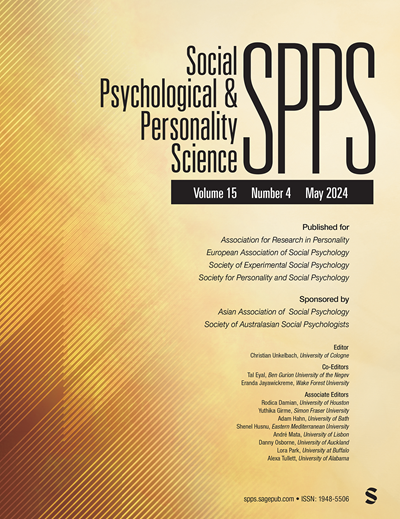Is It Safe for Us to Be Together Again? Identity, Trust, and Perceived Risk at Mass Events During the COVID-19 Pandemic
IF 3.3
2区 心理学
Q1 PSYCHOLOGY, SOCIAL
引用次数: 0
Abstract
Three years after the outbreak of COVID-19, governments are still working toward a return to “normal life.” Yet, the twin forces of ongoing disease threat and progressively relaxing restrictions raise important questions about whether, where, and when people feel safe. We analyzed data from post-event surveys of participants at live events held across Denmark between June and November 2021 (nindividuals = 4,932; nevents = 79). Consistent with the social identity model of risk-taking, identification with the audience, trust in others, and felt safety were interrelated. Multi-level modeling revealed that audiences responded to the heightened risk posed by crowds after COVID-related attendance restrictions were lifted, but also that individual differences in identification blunted the connection between crowd density at events and individual feelings of trust and safety. These findings point to a potential identity-based slippage between felt safety and actual safety in the context of collective participation and disease threat.我们再在一起安全吗?COVID-19大流行期间群体性事件中的身份、信任和感知风险
在新冠疫情爆发三年后,各国政府仍在努力恢复“正常生活”。然而,持续的疾病威胁和逐渐放松的限制这两股力量提出了人们是否、在哪里以及何时感到安全的重要问题。我们分析了2021年6月至11月期间丹麦各地现场活动参与者的事后调查数据(个体= 4,932;事件= 79)。与冒险的社会认同模式相一致,对观众的认同、对他人的信任和安全感是相互关联的。多层次模型显示,在取消与covid相关的出票限制后,观众对人群带来的更高风险做出了反应,但个体识别的差异也削弱了活动人群密度与个人信任和安全感之间的联系。这些发现指出,在集体参与和疾病威胁的背景下,感觉安全和实际安全之间存在基于身份的潜在滑动。
本文章由计算机程序翻译,如有差异,请以英文原文为准。
求助全文
约1分钟内获得全文
求助全文
来源期刊

Social Psychological and Personality Science
PSYCHOLOGY, SOCIAL-
CiteScore
12.50
自引率
1.80%
发文量
77
期刊介绍:
Social Psychological and Personality Science (SPPS) is a distinctive journal in the fields of social and personality psychology that focuses on publishing brief empirical study reports, typically limited to 5000 words. The journal's mission is to disseminate research that significantly contributes to the advancement of social psychological and personality science. It welcomes submissions that introduce new theories, present empirical data, propose innovative methods, or offer a combination of these elements. SPPS also places a high value on replication studies, giving them serious consideration regardless of whether they confirm or challenge the original findings, with a particular emphasis on replications of studies initially published in SPPS. The journal is committed to a rapid review and publication process, ensuring that research can swiftly enter the scientific discourse and become an integral part of ongoing academic conversations.
 求助内容:
求助内容: 应助结果提醒方式:
应助结果提醒方式:


